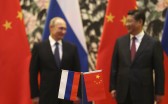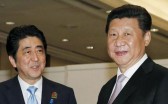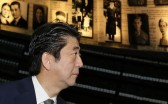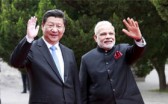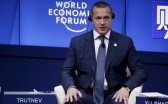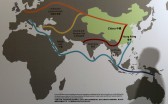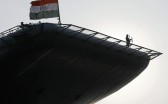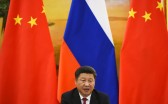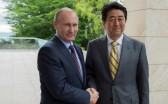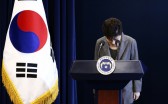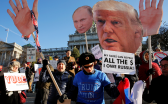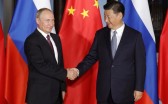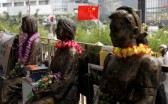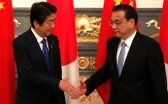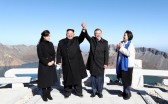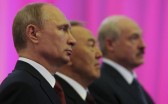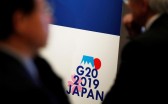On September 3, Beijing’s sky was “parade blue.” It was a rare day when the US embassy index indicated that the air quality was “good.” Following the “APEC blue” last November, the Chinese government once again displayed its power to achieve what seems hardly possible. Yes, the parade was a display of power, indeed, with the brandishing of modern weapons and the disruption and restriction on citizens’ work and livelihood. President Xi Jinping, in his dark Mao-suit, announced on the Gate of Heaven that the Chinese people fought gallantly in the past and that the Chinese nation, having created a splendid civilization of over 5000 years, would certainly usher in an even brighter future.
Well, an even brighter future for whom, people abroad are asking, including Japanese who have been following the September 3 events with close attention. On the day of the parade, a goodly number of citizens were denied access to hospitals near Chang’an Avenue because of security control. Internally, people have recently been made even more aware that the Communist Party relies on the naked exercise of power to achieve its interests and maintain order. There is no rule of law, and state interests stand above human rights. That is, people are resigned to live under Pax Communista, an order supported by the outstanding power of the Party. Trying to channel their discontent, the leadership seized the opportunity of the seventieth anniversary of war’s end to combine claims of a glorious victory (however misleading some of the assertions) with the bombast of a militaristic display meant both to inspire pride at home and to awe the outside world, not least Japan—the historical focus and an obvious target of China’s strength.
Prime Minister Abe Shinzo could have shown up in Beijing under the blue sky, although it was a remote possibility that he would have attended the military parade itself. Abe had indicated on Japanese television that he might visit China if the ceremonies were “not anti-Japan but reconciling” in character. However, Abe’s remorseful statement issued on the eve of the seventieth anniversary was received with skepticism in China, while Xi’s remarks in the commemorative events did not mention the postwar efforts for cooperation and reconciliation between the two nations. To this, Cabinet Secretary Suga Yoshihide expressed his big regret that the Chinese side did not accept Japan’s request and failed to include the element of reconciliation in Xi’s speech.
Another fact that annoyed the Japanese side was the attendance of President Park Geun-hye of South Korea at the military parade. Her acceptance of the invitation to the ceremonies was understandable, considering her country’s economic dependence on China, and she did gain a point in Beijing by extracting China’s agreement to a Japan-ROK-China trilateral summit in the autumn. However, her attendance at the parade gave the appearance in Japan of symbolizing her inclination to lean towards China in the strategic competition in the Western Pacific and revived talk of her close alliance with Xi Jinping in the contemporary “anti-Japanese resistance” over history.
Neighbors including South Korea are aware that China relies on power to achieve its interests, and they do not accept that. A good example is the attempt to change the status quo around the Senkaku Islands by physical force, i.e., by sending coast guard vessels into the territorial waters and claiming that they are patrolling. Needless to say, such forceful actions occur more frequently, intensively, and extensively in the South China Sea. If the “brighter future” of China implies the “revival” of Pax Sinica, as of now it is likely to become an extension of Pax Communista. That is, the order will be supported by the outstanding power of China, and there will be no rule of law. No neighbor would want that, and they are all scratching their heads over the dilemma that economic cooperation with China increases the potential threat to their security. Many Japanese were reminded of this reality by the military parade.
It is strange and interesting that the Chinese themselves often do not realize such concerns of their neighbors. Nationalism can be mesmerizing. Xi Jinping has remarked many times that there is no DNA of invading others in the blood of the Chinese. Admiral Zheng He of the fifteenth century, who is often extolled in China as the symbol of its peaceful maritime advancement, is considered an invader in a number of regions in South and Southeast Asia. Whenever I tell my Chinese friends that they should not call their neighborhood diplomacy “peripheral diplomacy” since it implies that you are the center or the “middle kingdom”, they awaken to this and acknowledge that I am right.
For Japan-China relations, there is a case for cautious optimism as long as Xi Jinping stands firmly at the helm, given structural issues. First, there is a contradiction between development and nationalism, the two pillars that support the legitimacy of Communist Party rule. For peaceful development, China needs to improve ties with Japan. However, the way the Party arouses nationalistic sentiments damages its relationship with Japan. For example, in celebrating the seventieth anniversary, there was no mention whatsoever of the history of the past 70 years in which China mended ties and cooperated with Japan, receiving enormous contributions from Japan toward its development.
Second, since the Party has made Japan a safe target of criticism through its patriotic education, opposition to the leadership can take the form of anonymous attacks on Japan. In August, a Xinhua commentary demanded that the Japanese emperor apologize for the war, which provoked a sharp protest from Suga, the cabinet secretary. If, for example, further economic downturn or the approaching Party Congress intensifies political infighting, opposition to Xi may increase such provocations. In the failed negotiations over Abe’s September visit to Beijing, the Chinese side reportedly insisted that Abe should come and take part in the ceremonies on September 3. One wonders if such a tall order stemmed from increased internal pressure resenting Xi’s rapprochement with Japan. Of course, as I mentioned in the first statement, it would be tempting for Xi himself to resort to arousing nationalistic sentiments if social and/or Party unity grows even more unstable.
The need to reduce the heat of exclusive nationalism exists on both sides. However, the problem is much more serious among the Chinese not only because of “patriotic education,” but also since amid modernization they tend to be fixated on the “rich nation, strong military” paradigm. It is true that although politics in China has not changed or has even been retrogressive, the Chinese people and the Chinese society are changing rapidly due to marketization and what comes with it. Nevertheless, it most likely will take some time for the majority of the Chinese to liberate their thoughts and free themselves from Party propaganda on the “splendid civilization of over 5000 years” and its modern humiliation.

